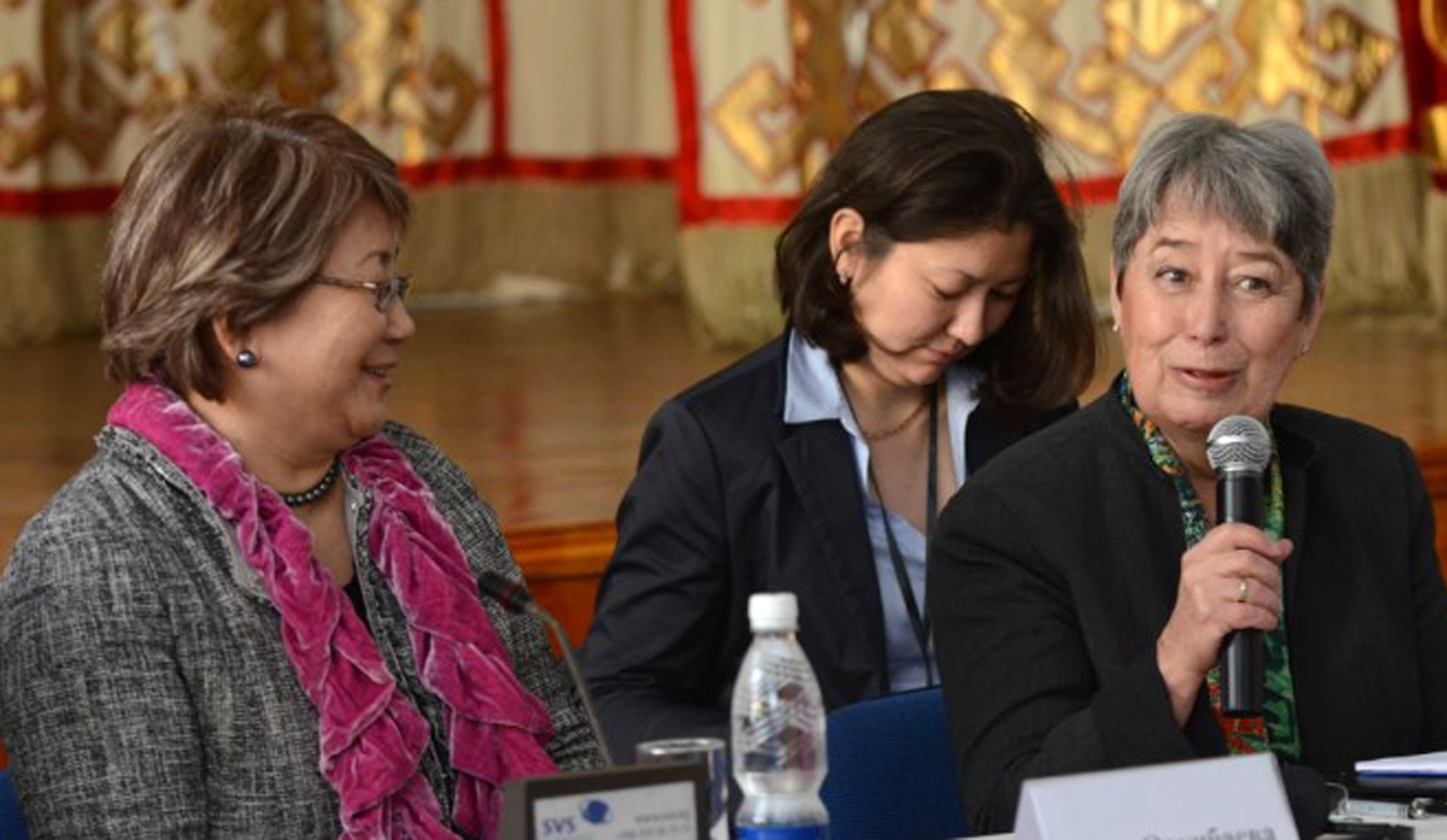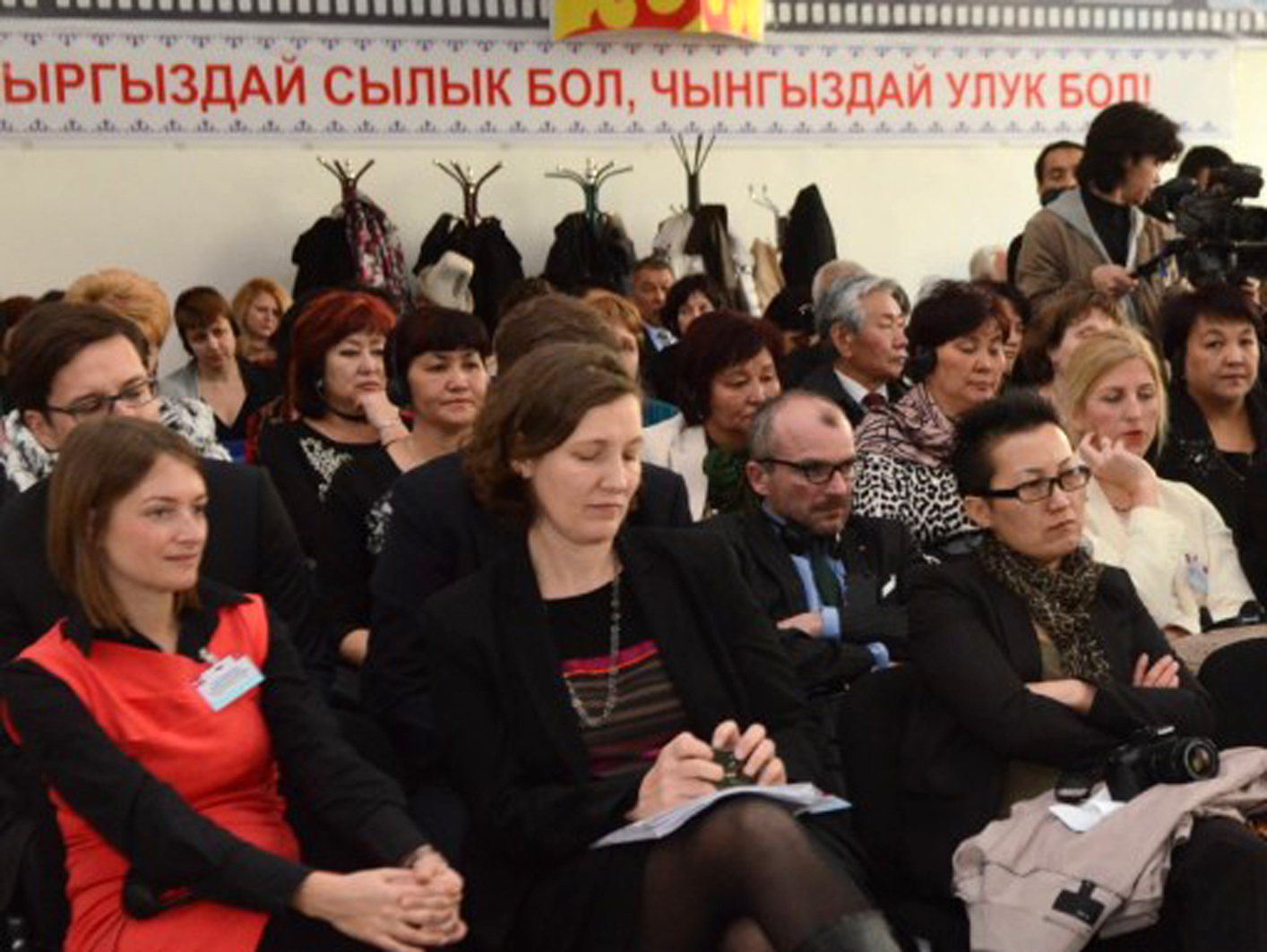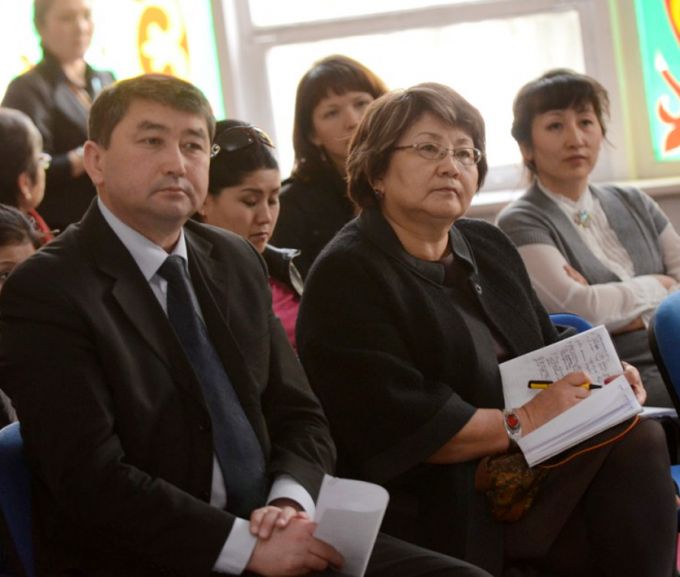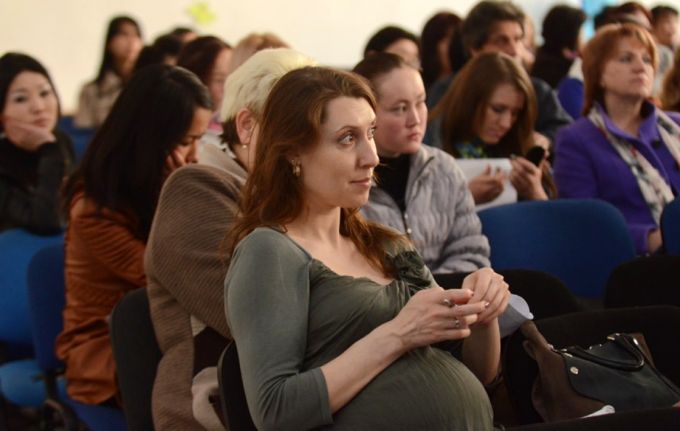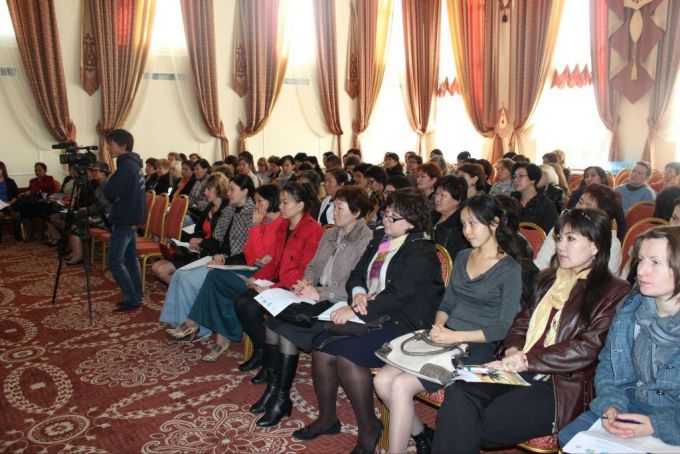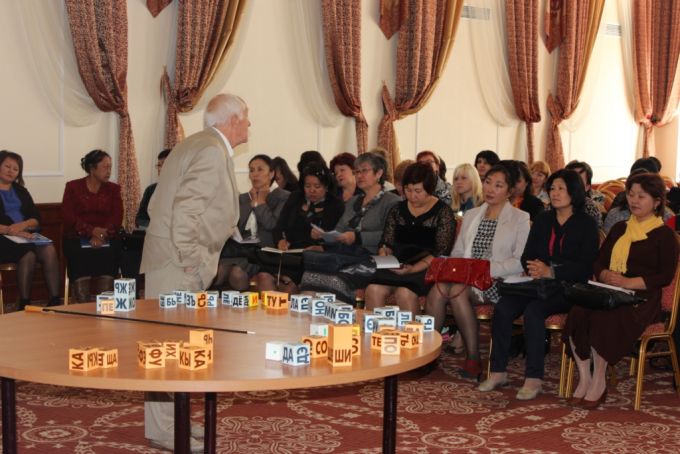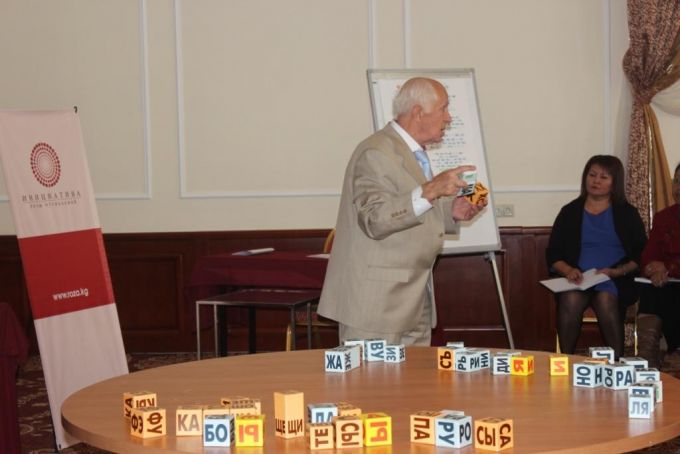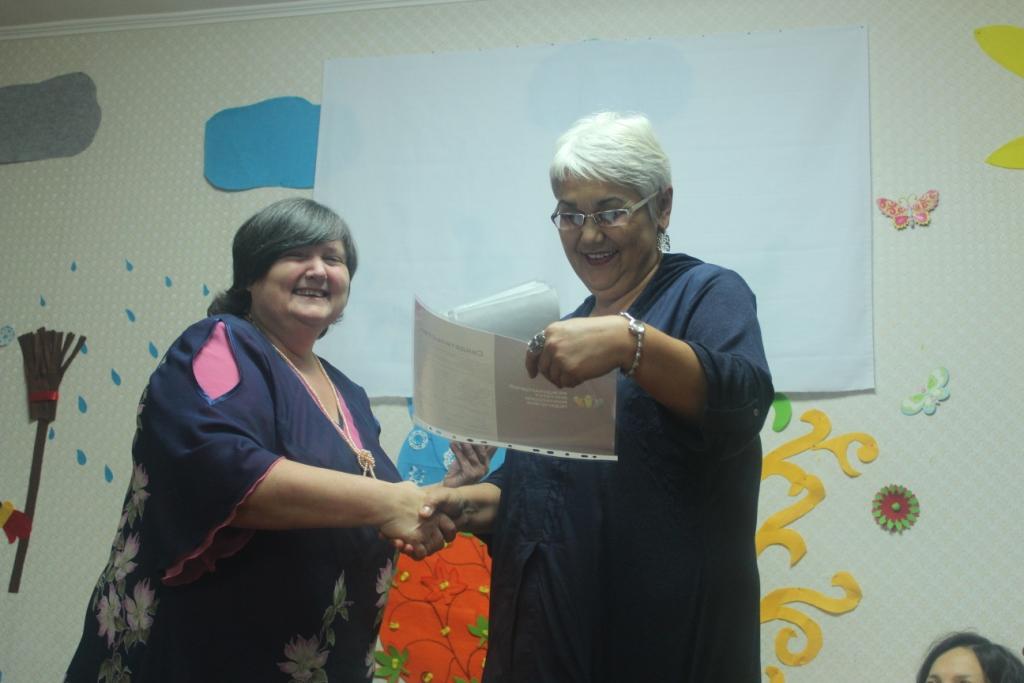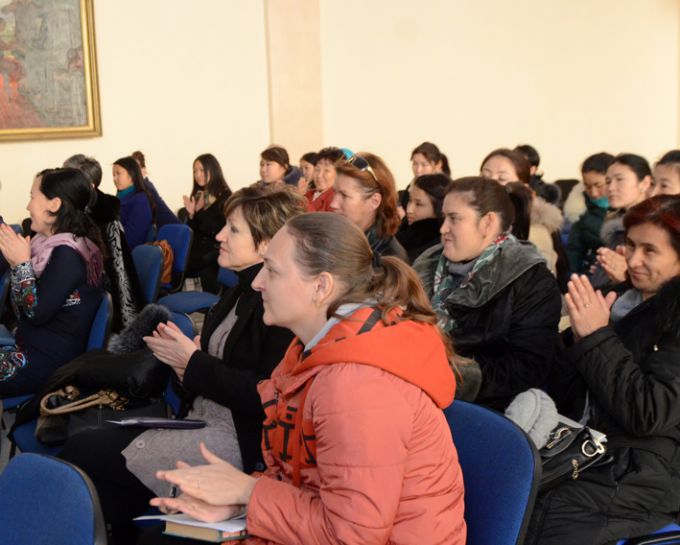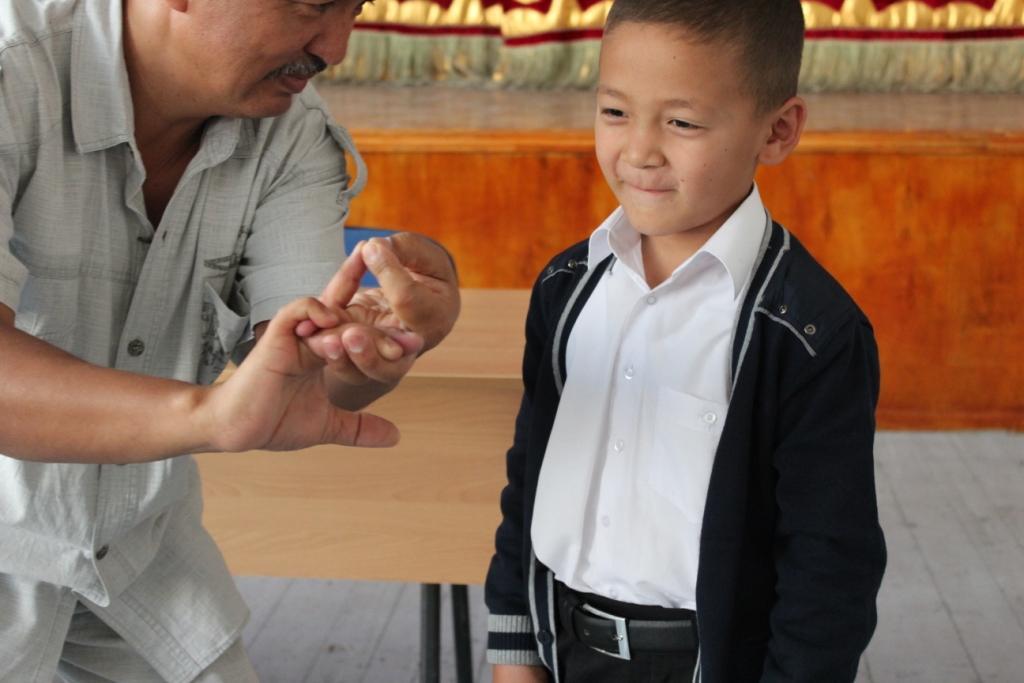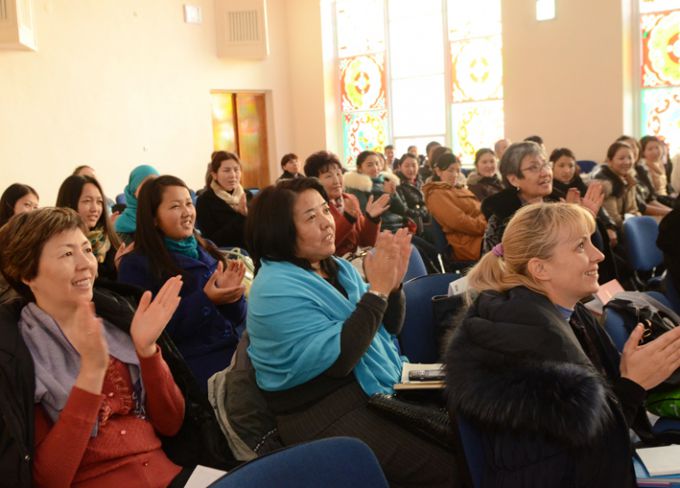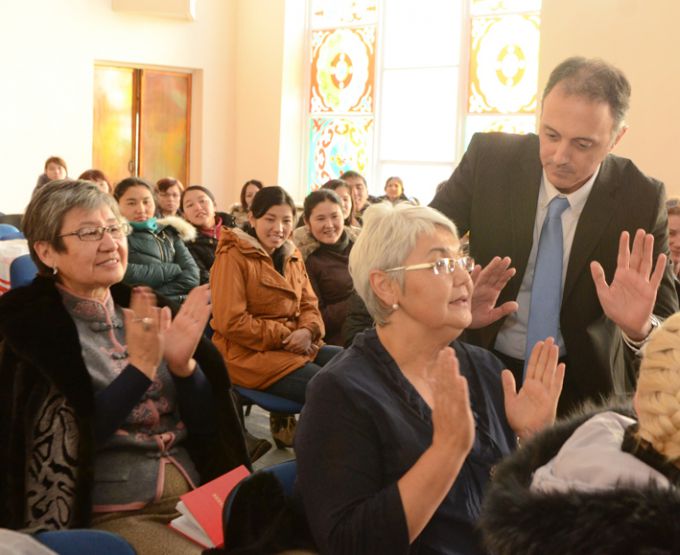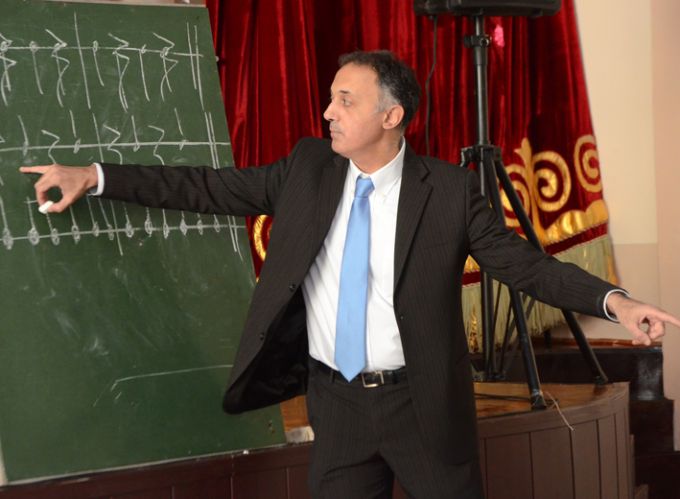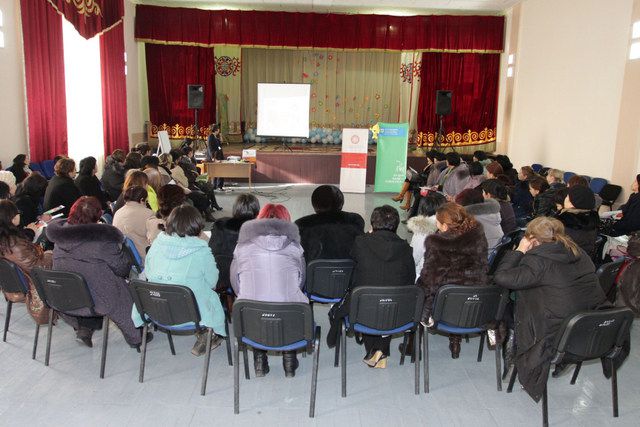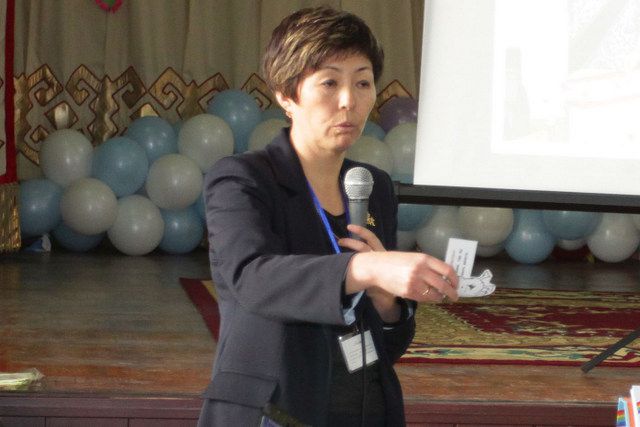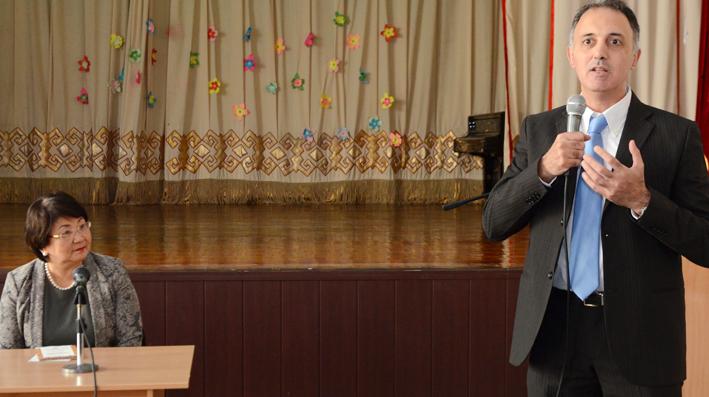Year 2013: The School of Childhood
February 17, 2022, 21:15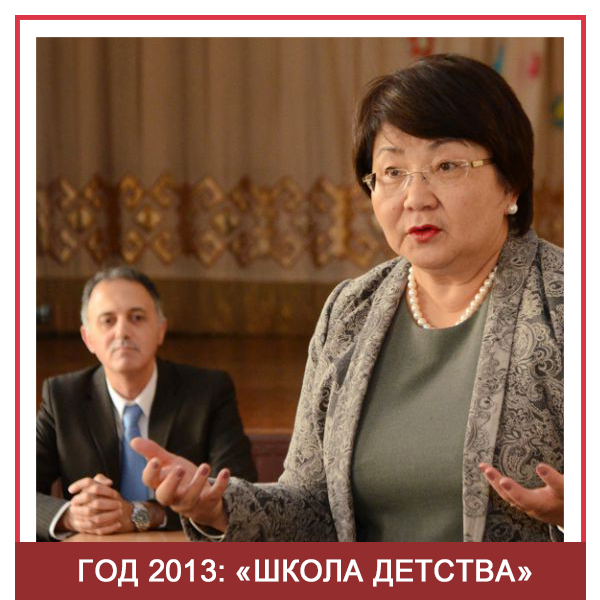
The Foundation continued its series of lectures to familiarlize parents and teachers with various methods and techniques of early childhood development.
In 2013, unique lectures and trainings were organised.
About the “Step-by-Step” educational program: The peculiarity of the Step-by-Step program includes teachers, parents, and the child's family are equally involved in the process of child's development and education. The program was built on the principles of inclusion, equal access, diversity; and it takes into account the individual inclinations of each child).
A unique seminar was organised by the Zaitsev Foundation - a training course by the author of "Zaitsev's Cubes", Nikolai Aleksandrovich Zaitsev. The workshop was attended by 141 people, including 38 teachers from different regions of Kyrgyzstan: Toktogul, Toguz-Toro, Jety-Oguz, Maili-Suu districts, Osh and Jalal Abad cities, as well as Moscow and Sokuluk districts, Kara-Balta city and Issyk-Kul region. The workshop took place over five days, of which two days were dedicated to teaching reading, and then two days to teaching mathematics, and the last day to teaching English.
It is difficult to overestimate the importance of such an event. The arrival in Bishkek of N.A. Zaitsev is one thing to read and reread as teaching aids, to observe others using this system, and quite another to hear all this from the author.
The N.A. Zaitsev methodology is a method of the early development of a child, based on the inner capacity of the child's auditory and visual memory. When this method is used correctly, by the age of four-five, a child can read and count, and has correct literate speech and writing. Learning is quick, easy and fun. As a result, by the age of six or seven, children are ready to pass the primary school curriculum, preserving and multiplying children's curiosity and freeing up time for creative activities.
A lecture by Dr. Mikhail Lazarev, Professor, PhD in Pedagogical Sciences, Full Member of the Academy of Pedagogocal and Social Sciences, Head of the Pre- and Perinatal Health Department of the Russian Academy of Medical Sciences, was held on the SONATAL method of musical development of the fetus
On 15 March, a training workshop for science teachers, entitled "Science in our lives", was held at Arabayev University, the Experience of the Science Centre, Vienna". Simple experiments and tests that children do themselves in science centres, develop children's curiosity, their ability to analyse and draw conclusions, and explain scientific processes using very simple and illustrative examples. For Kyrgyzstan, this experience has shown it is possible to develop experimental science, both in the school curriculum and outside school, without the use of expensive chemicals. All experiments are safe for children and harmless to the environment.
We would like to remind you that at the initiative of the Foundation, for the first time in Kyrgyzstan, a two-year cycle of training on Montessori pedagogy was held. The trainings were led by the Director of the International Institute of Montessori Pedagogy, Nadezhda Smirnova, who is one of the recognized Montessori educators in Russia and abroad.
On November 12, 2013, participants of the training on Montessori-pedagogics, who have successfully passed interim certification, were awarded certificates of the International Institute of Montessori-pedagogy on the completion of the first stage of the training course.
That year also saw the opening of the Blue Bird Montessori Club. The club was founded by five young girls who took part in the Montessori training we mentioned earlier.
The lecture, "British Secondary Education System in Kyrgyzstan" by Mr Johannes-Labuskahne, Director of European School in Central Asia, was about the British primary and secondary education system. In his presentation the lecturer highlighted issues of structure, governance, financial accountability (policy and institutional levels), quality assessment mechanism and other factors that have yielded consistently high results over time.
Meeting with Dr. Christoph Stolzenburg (Germany), who gave a presentation on "Developmental Patterns of the Child from Zero to Three Years Old".
Another interactive lecture in September was on "The role of folk games in the development of pre-school children.
The lecturer was Taalaibek Umetov, the author of the collection of Kyrgyz folk games, whose concept of folk games and cultural diversity formed the basis of the Etnomir tourist complex created near Moscow.
A review lecture on methods of musical upbringing and development of children of preschool age - Carl Orff and Shinichi Suzuki: Lecturers were Giurardo Colela, Italian conductor, head of the Youth Central Asian Orchestra and Kamila Isabekova, head of the Montessori club "The Blue Bird" and a certified teacher by the Carl Orff method.
In December, there was a lecture on the Aphlatun program, a social and economic activity program for children and adolescents.Aphlatun is a balanced social and financial education program for children aged 6-18. Learning the basics of social responsibility and financial literacy can be part of both formal and non-formal education.
